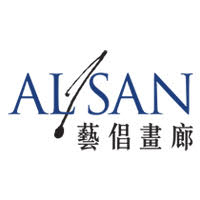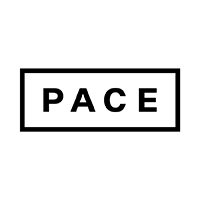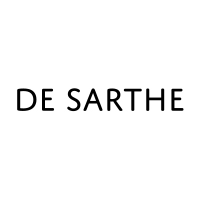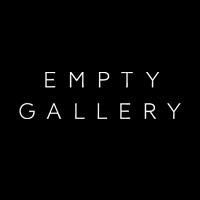The Imagined Reality of Betül Aksu’s “Permessus”
By Alfonse Chiu

Installation view of BETUL AKSU’s "Permessus," 2024, at AVTO, Istanbul. Photo by Doga Yirik. Courtesy AVTO.
Betül Aksu: Permessus
AVTO
Istanbul
May 24–August 3
As the saying goes, there is nothing certain except death and taxes. But nowadays, we ought to add permits to the list, as the need for authorization permeates nearly all aspects of contemporary existence. The question of who permits versus who is permitted, however, has been historically enmeshed in power relations that broker uneven access, with that access based on arbitrary markers of identity and personal history.
This question animated “Permessus,” a solo exhibition by Betül Aksu at the Istanbul-based independent space AVTO, taking inspiration from the eponymous, ancient, and imaginary city. The title is also a sarcastic riff on the permesso di soggiorno, one of the many residence permits that the Turkish artist had to apply for in order to work in Italy (and later, in the United Kingdom). The speculative territory of Permessus—accessible by imagination to anyone who wished to enter it—then became a site for acknowledging the concept of permission as a collective fiction.
Mimicking the presentation of objects found during archaeological excavations, altar or table (2024) displayed an eclectic collection of debris—ceramic shards, pieces of metallic paper enclosed in archival plastic wrappers, screws, desiccated flowers, and other unidentifiable fragments—on top of a plinth made from concrete blocks and clay mortar, showcasing what may have been used in everyday Permessusian life. Yet, the installation’s dichotomous title suggests that the materiality of these objects is subsumed by viewers’ logic. This is because one’s interpretive framework can alter the reality of a work: when altar or table is viewed as an altar on which artifacts are placed, Permessus’s status as an actual historical settlement becomes fixed and affirmed; but if viewers perceive Permessus as an imaginary and extant city, the installation becomes nothing more than a table filled with quotidian waste.
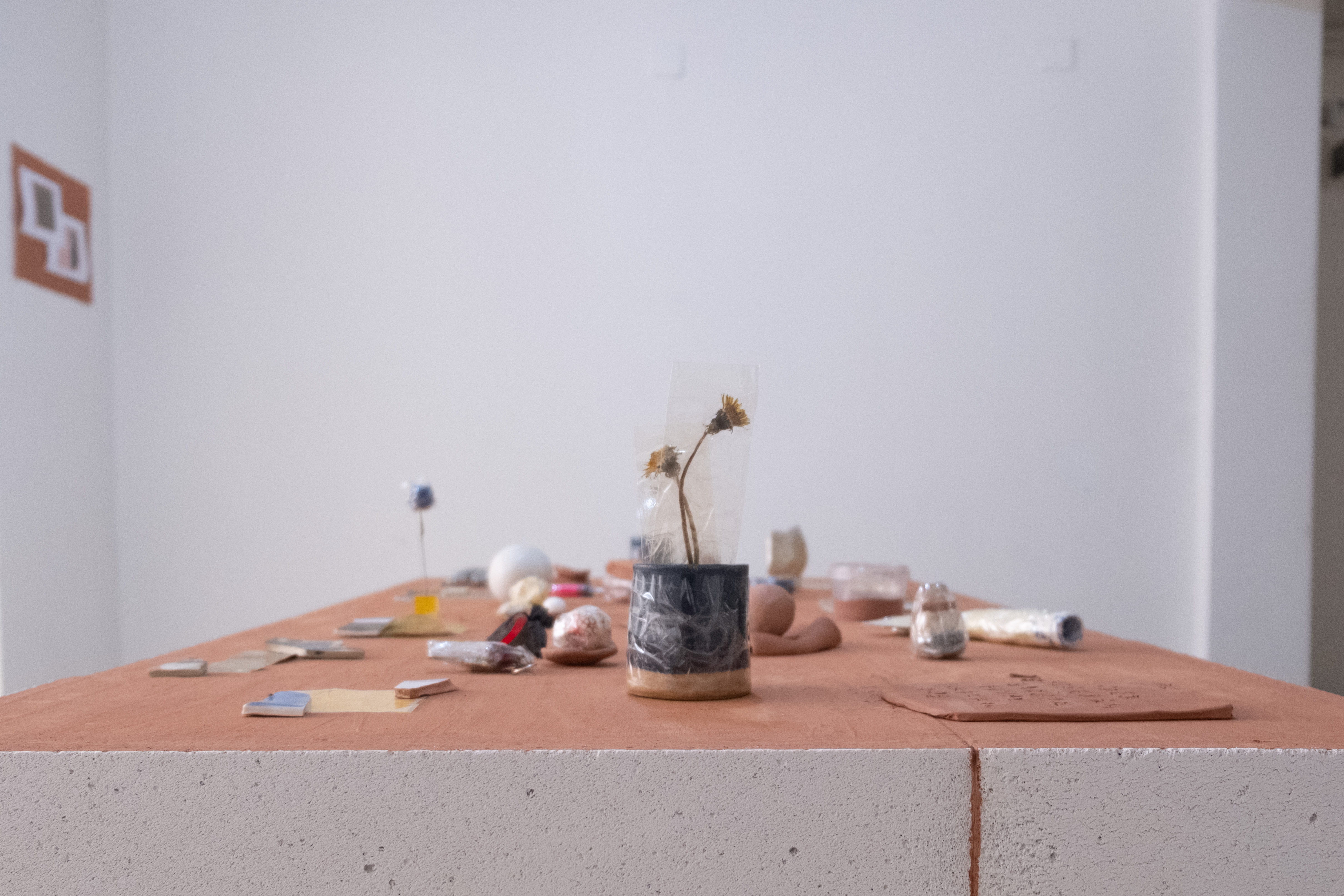
BETUL AKSU, alter or table, 2024, mixed-media installation, dimensions variable. Photo by Doga Yirik. Courtesy AVTO.
Aksu’s subversion of visual rhetoric could also be found in guiding ideas and objects (2024). The nearby installation comprised wall-mounted prints of flatbed image scans depicting objects from altar or table, as well as handwritten paper notes derived from the Turkish political scientist Fatmagül Berktay’s philosophical musings. These elements’ references to both an alternate history and material culture allowed viewers into the psychic realm of Permessus as an imaginary space, while also highlighting a more conceptual plane: the indexical nature of representation. By deploying the imaging conventions of archival documentation, the installation projects historiographical speculations onto the objects it represents, further legitimizing and reinforcing the perceived reality of “Permessusian culture.” This inscription of presumed fact alongside fiction alludes to how conjectures and accepted truths, such as the boundaries of a nation state, gain symbolic weight through layers of sense-making and mediation. Aksu posed a similar critique in the oracle of Permessus (2024), a web-based chatbot programmed to take visitors on a text-based tour of the fictional city. The chatbot is continuously updated with world-building details that visitors contribute, merging the imaginary city with elements of reality.
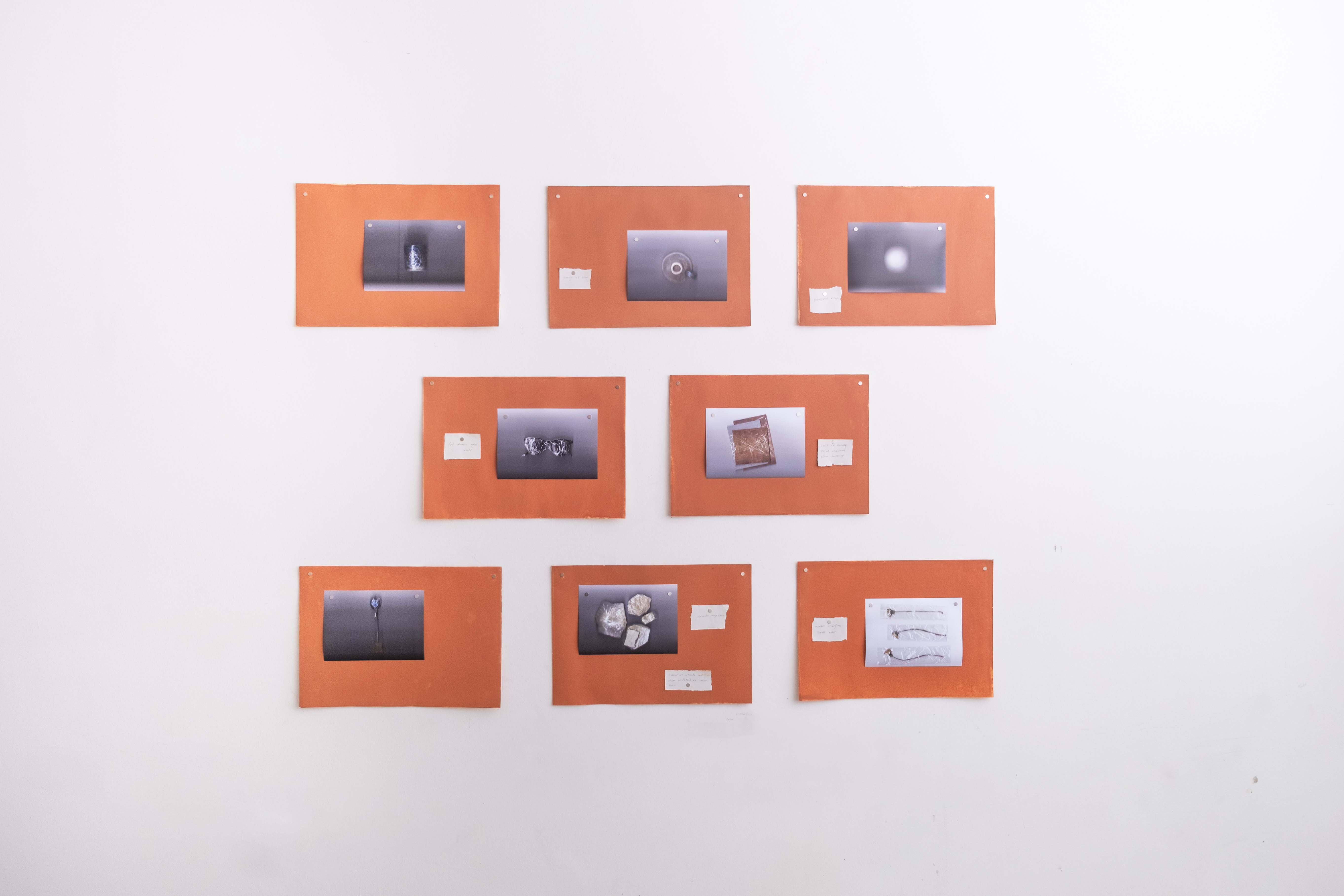
BETUL AKSU, guiding objects and ideas, 2024, mixed-media installation, dimensions variable. Photo by Doga Yirik. Courtesy AVTO.
Sequestered in an adjoining room, the installation editing table (2024) further problematized the relationship between narrative and reality. Alluding to the editing stations of traditional cinema, in which celluloid film strips are physically manipulated to construct new narratives, editing table showcased Aksu’s process of making, un-making, and re-making the world of Permessus as an ongoing, iterative project—one that is shaped by both artist and audience. Bracketed by a laptop, an ever-changing stack of books, and reference material, the exhibited paper scraps, fired tiles, and wet wipes, among other miscellaneous supplies, became art objects as much as they are known functional tools. At AVTO, these objects further facilitated Aksu’s world-building operation, which seeks to erase the divide between the physical world and its mental counterpart.
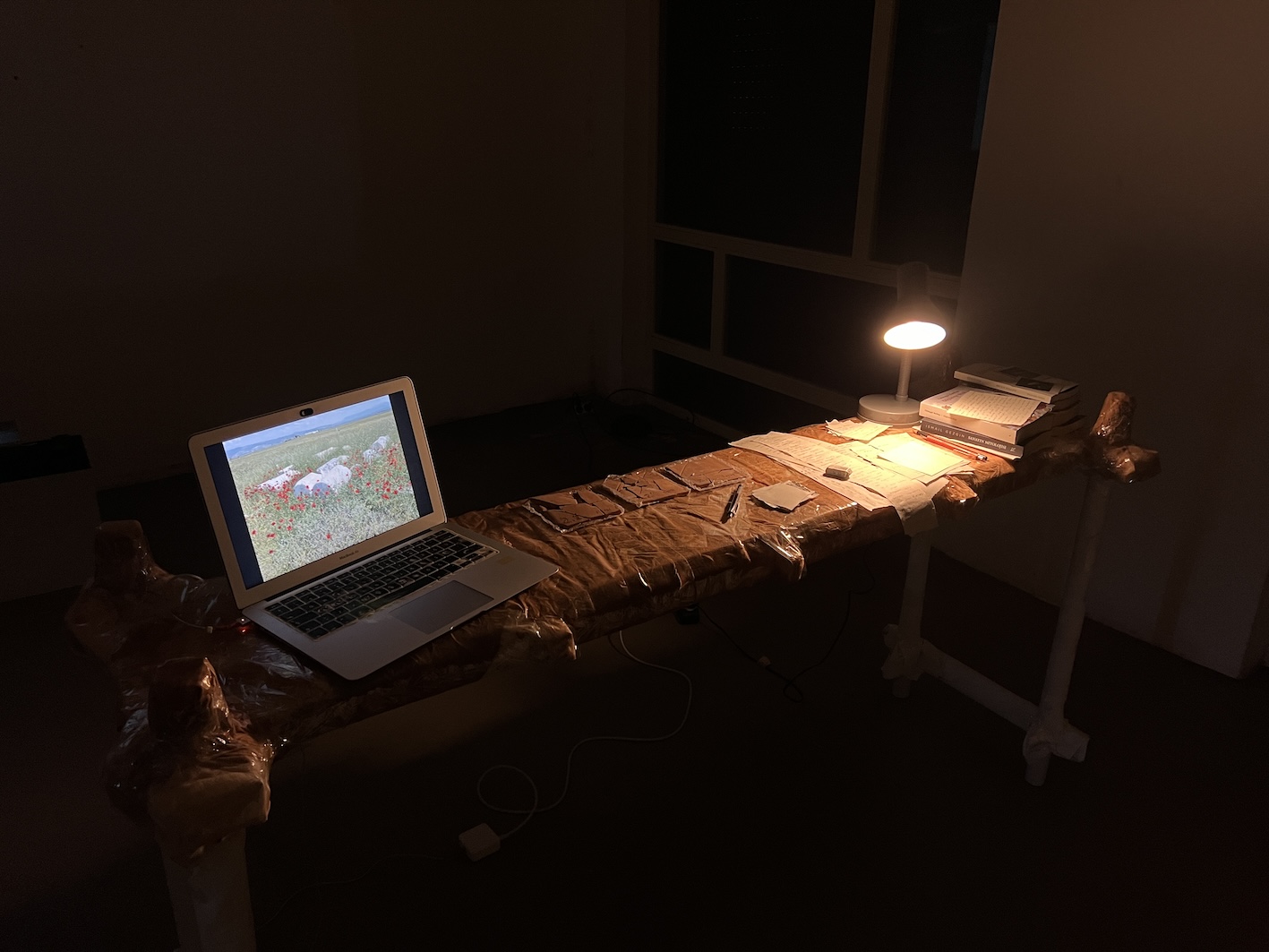
BETUL AKSU, editing table, 2024, mixed-media installation, dimensions variable. Photo by Doga Yirik. Courtesy AVTO.
Throughout “Permessus,” Aksu’s invitation for viewers to communally imagine, and thus form, the eponymous city encouraged a new relational consciousness. As a visitor traversed unreal terrains, they were also grounded to the specific moment of encountering Aksu’s material works. In this way, the artist highlighted the fictional nature of boundaries, as well as the possibility to challenge them through collective imagining. Transcending the limitations of permissibility and geopolitical reality, Permessus existed within the reality of Aksu’s exhibition as any other tangible territory does: through a collective auxiliary of intangible belief.
Alfonse Chiu is an artist, designer, and curator based between Taipei, Singapore, and New Haven.


